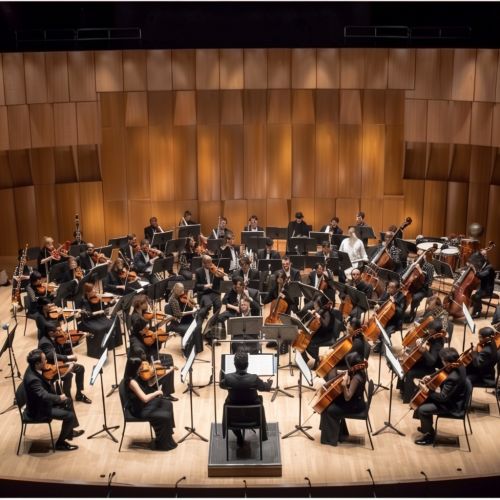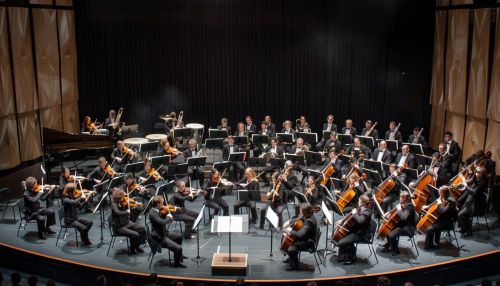Postmodern music
Origins and Development
Postmodern music is a genre of music that emerged in the mid to late 20th century as a reaction against the perceived rigidity and elitism of modernist music. The term "postmodern" was first used in this context by composers and critics in the 1960s to describe a shift in aesthetic and cultural attitudes in the arts.


The origins of postmodern music can be traced back to the works of certain avant-garde composers in the early 20th century, such as Charles Ives, Erik Satie, and John Cage. These composers challenged the traditional norms of music composition and performance, paving the way for the postmodernist movement.
In the 1960s and 1970s, the postmodernist movement gained momentum with the emergence of musical styles such as minimalism, free jazz, and experimental music. These styles rejected the formal structures and complex harmonies of modernist music, instead embracing simplicity, improvisation, and non-traditional sound sources.
Characteristics
Postmodern music is characterized by its diversity and eclecticism, reflecting the postmodernist philosophy of "anything goes". It often incorporates elements from various musical genres, including classical, jazz, pop, rock, and world music. This genre-blending is often referred to as "pastiche" or "bricolage".
Another key characteristic of postmodern music is its rejection of the distinction between "high" and "low" art. Postmodern composers often incorporate popular music styles and techniques into their works, blurring the lines between art music and popular music.
Postmodern music also challenges the traditional notions of authorship and originality. It often involves sampling, remixing, and appropriation, questioning the concept of the "original" work of art.
Notable Composers and Works
Many composers have been associated with the postmodernist movement in music, including John Cage, Philip Glass, Steve Reich, and Terry Riley. Their works often incorporate elements of minimalism, repetition, and non-western musical forms.
John Cage's "4'33"" is often cited as a seminal work of postmodern music. The piece consists of four minutes and thirty-three seconds of silence, challenging the traditional definitions of music and performance.
Philip Glass is known for his minimalist compositions, which feature repetitive structures and simple harmonies. His opera "Einstein on the Beach" is considered a landmark work of postmodern music.
Impact and Legacy
The impact of postmodern music can be seen in various aspects of contemporary music. The genre-blending and eclecticism of postmodern music have influenced many contemporary musicians and composers, from pop artists to film score composers.
The postmodernist approach to composition and performance has also had a significant impact on music education. Many music schools and universities now offer courses and programs in postmodern music, reflecting its importance in contemporary music culture.
